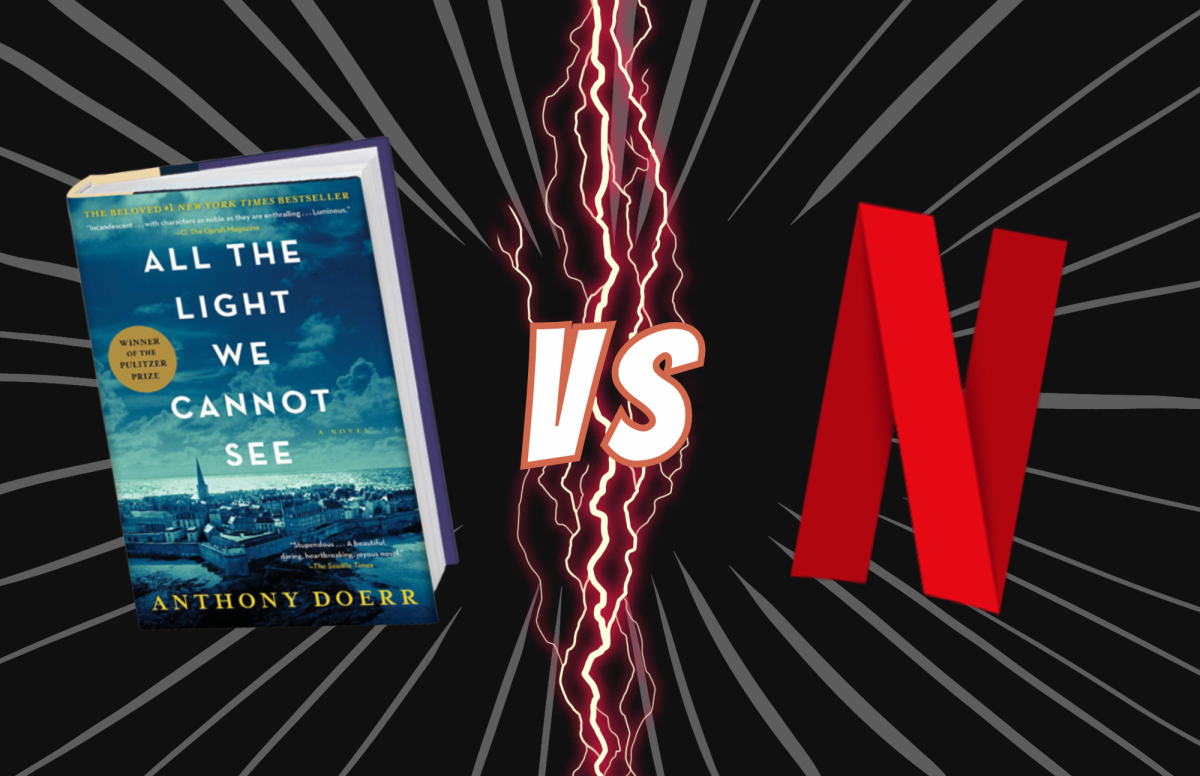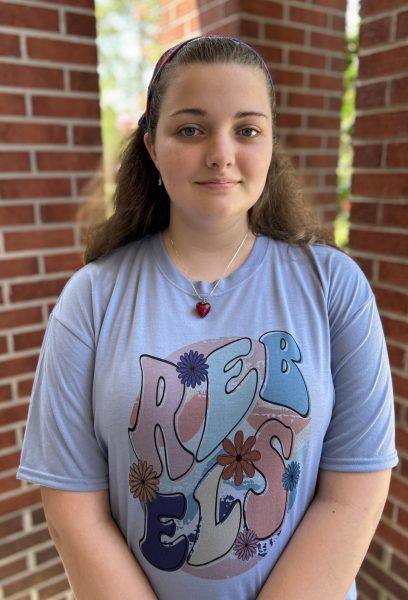“All The Light We Cannot See”, a novel that spent 200 weeks as a New York Times BestSeller and sold 15 million copies worldwide, has recently been adapted into a Netflix limited series, and has once again taken the world by storm.
Written by Anthony Doerr and published in 2014, “All The Light We Cannot See” is a book that is set in World War II and has gained widespread recognition for its beautiful yet tragic storytelling, as well as its commentary on the self-destructiveness and morality of human nature, and the horrors that people committed and endured during war. The novel won the Pulitzer Prize for fiction, and has very rarely received negative reviews by critics.
The limited series was released on Nov.2, 2023, and it wasn’t long before it was in the top ten for T.V shows. It maintained steady high ratings and positive reviews, and many fans of the book found that it stayed faithful to the message and commentary that drew them to the book in the first place.
Both split between the perspective of two teenagers who have made life threatening decisions. There is much focus on the young and blind Marie-Laure, played by Aria Mia Loberti, who, with her father, seeks refuge in the coastal city of St. Malo, living in the home of her Great Uncle Ettiene, played by Hugh Laurie, who is plagued with flashbacks and haunted by his past as a World War I soldier. There they find their own ways to resist against the oppressive and terrifying forces of the Nazis. With them they carry a dangerous artifact from the museum her father worked at in Paris. There is also focus on technological genius Werner, played by Louis Hoffman, who lived the life of an orphan with his sister before his talents for repairing and tracking radios got him much recognition, but led him on a path of self-destruction and a loss of innocence. Their paths end up colliding when he is sent out to end her life due to the illegal yet inspiring and secretly encoded messages that she and her uncle broadcast.
While the base story remains, there are certainly many details that the adaptation either inserted, took out of the series, or completely changed. There are deaths that occurred within the book that were left for interpretation in the series, and there were characters that survived in the book that ended up dying in the series.
Other changes involved characters that were added to keep the story in a constant state of conflict, and other more specific things were altered to better suit its audience. For example, Marie’s Uncle Ettiene had a housekeeper, Madame Menec, that encouraged Marie, her uncle, and their community to resist against the Nazis. In order to strengthen the bond between Ettiene and Manec, she now takes on the role of Ettiene’s sister.
There are many more changes like this, and many characters are added to enhance the conflict that characters endured in order to keep viewers more engaged. When adapting things to the screen, it was obvious that the creators wanted to keep things more dramatized, as the attention span of someone watching a show is going to be much shorter than someone reading a detailed book.
The book is widely beloved due to the way its characters serve as metaphors for the way we function in a world turned upside-down. Marie, although she is blind, is often described to have this light, or innocence within her that keeps her brave and strong, that allows her to see a less superficial and a more vibrant world that others cannot. Werner has changes that come upon him just as changes come upon anyone in a world so torn apart by violence and evil, and he must make decisions that keep him alive, but allow him to maintain his values that a life of tragedy and poorness has given him.
Despite so many details changing, it’s evident that the series worked hard to maintain this message that the book so strongly conveys.


